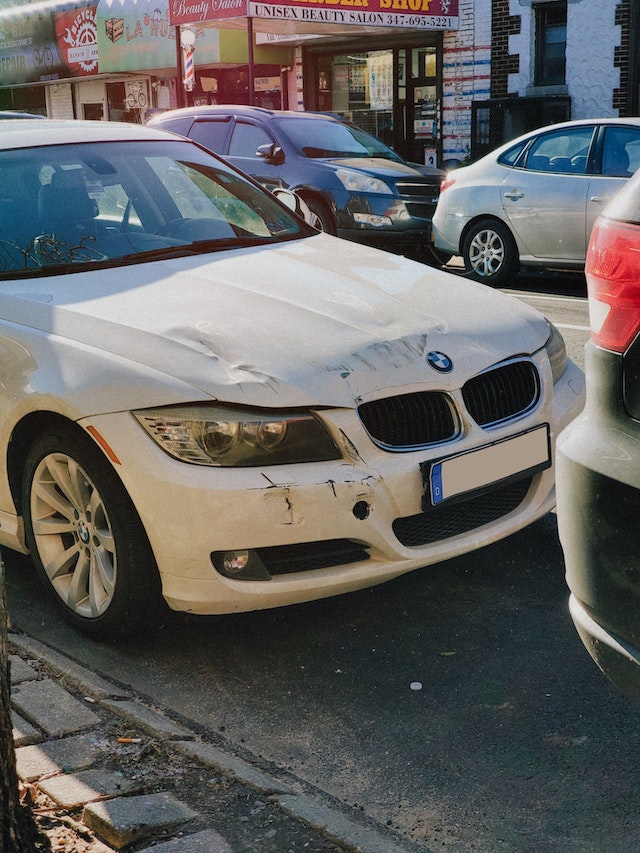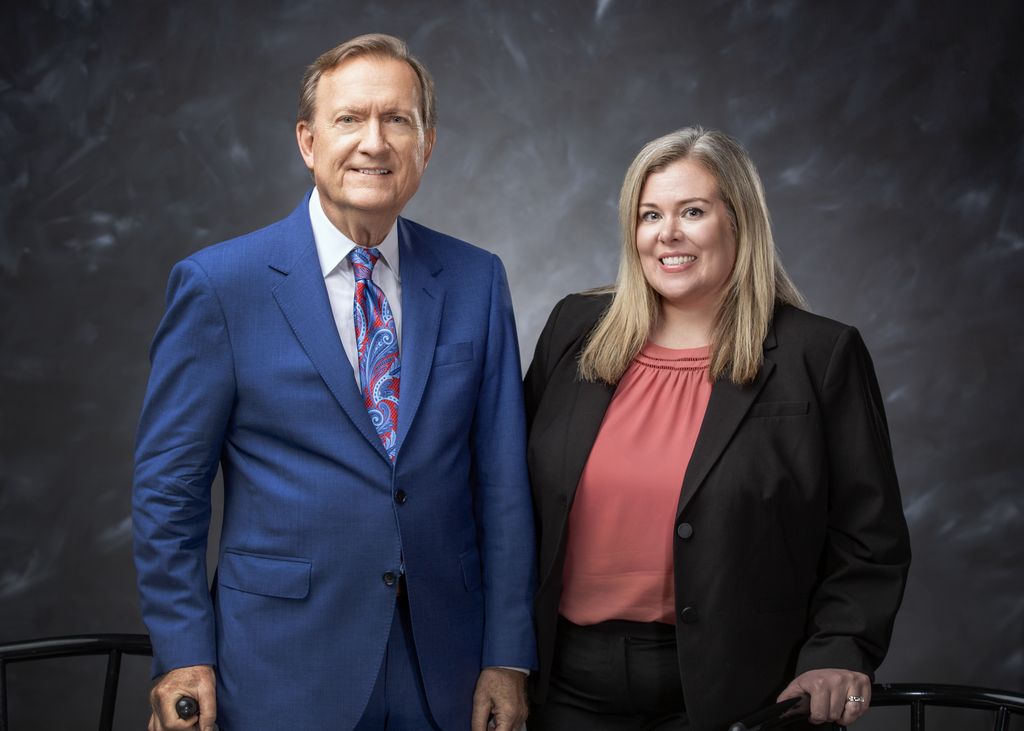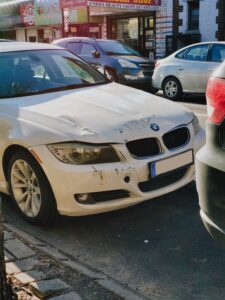
Who Is at Fault in a T-Bone Accident?
Have you been involved in a T-bone accident? The experience may have left you reeling physically and emotionally. It’s common for those involved in this type of collision to experience severe injury requiring a lengthy recovery. Many injured victims may be emotionally traumatized after their physical injuries have healed.
While you may feel overwhelmed by your situation, it’s important to remember that you have options. Virginia law permits a victim to recover compensation from the party that caused their injuries. However, attempting to prove who is at fault in a T-bone accident in Virginia can be very difficult without the help of a qualified lawyer. Virginia has rigid personal injury liability laws. These laws may prevent an injured party from recovering any compensation if there’s evidence that they were partly at fault for the accident.
Read on to learn how to determine who is at fault in a T-bone accident and how an attorney can help you. If you have specific questions about your T-bone accident in Virginia, contact the qualified attorney at The Law Firm of Carlton F. Bennett, PLLC, today.
What is a T-Bone Accident?
A T-bone accident is also referred to as a side-impact collision. These collisions occur when the front of one car strikes another, usually on its side, forming the namesake “T” shape. T-bone accidents can happen for any number of reasons. However, the most common causes for these collisions include the following:
- Failing to yield at right-of-way intersections,
- Failing to stop at red lights or stop signs,
- Distracted driving,
- Driving under the influence of alcohol or drugs,
- Illegally turning at an intersection, and
- Improper merging onto freeways or highways.
T-bone accidents often cause catastrophic injuries for those involved. Due to the area of a vehicle where these collisions occur, those involved in these accidents generally suffer more severe injuries. These injuries leave victims with mounting medical expenses and an inability to work. Some victims may suffer permanent injuries forcing them to adapt to a new way of life with their families.
If you are injured in a T-bone collision, getting compensation from the driver that caused the crash is your right. You deserve to recover the compensation you and your family need to move forward with your lives. However, it can be challenging to understand the complex area of personal injury law. A lawyer will be able to help you understand what is needed to prove your claim.
Who Is at Fault in a T-Bone Accident?
It’s essential to understand the cause of a collision when determining fault in a T-bone car accident. You’ll need evidence to piece together the moments leading up to your crash.
T-bone accidents are commonly caused when a driver fails to obey traffic signs or signals or does not yield the right-of-way in an intersection. Determining who is liable in a T-bone accident often requires determining who had the right of way when the accident occurred.
However, even if one party did not have the right of way and caused the accident, the injured party’s actions may still impede their recovery. Virginia is a pure contributory negligence state. This means an injured party must prove that the responsible party is 100% at fault for an accident. If the injured victim bore any responsibility for the accident, even 1%, they cannot recover anything. As a result, insurance companies and the responsible party will work to cast doubt on the victim’s role in an accident to try and eliminate any financial obligation. An experienced attorney will anticipate this strategy and fight for you.
Common Injuries from a T-Bone Accident
The most severe and catastrophic injuries may result from T-bone collisions. Common injuries from T-bone accidents include the following:
- Traumatic brain injuries,
- Spinal cord injuries,
- Paralysis,
- Broken bones and bone fractures,
- Neck injuries,
- Whiplash,
- Lacerations requiring stitches,
- Amputation of limbs,
- Post-traumatic stress disorder, and
- Other emotional harm.
These injuries cause significant disruption to the daily lives of victims and their families. Many victims experience life-long changes if they experience a permanent injury.
Damages Available in a T-Bone Accident
While recovering compensation for your injuries can never take back the hardship you endured, compensation can assist you and your family in moving forward and healing. Virginia law permits victims injured in a personal injury lawsuit to recover compensatory damages and, on occasion, punitive damages. Compensatory damages include economic and non-economic damages.
Economic Damages
Economic damages include tangible losses. These damages commonly include the following:
- Medical expenses,
- Lost wages,
- Loss of future earnings, and
- Property damage.
Retain copies of all receipts, invoices, pay stubs, and other documents that support your claim for these types of losses. This evidence may support your demand for economic damages.
Non-Economic Damages
Non-economic damages represent subjective losses usually stemming from the psychological and emotional effects a person experiences due to the accident or injury. These damages typically include the following:
- Pain and suffering,
- Emotional distress,
- Loss of consortium,
- Loss of enjoyment of life, and
- Permanent disability or disfigurement.
Proving non-economic damages can be challenging because they are subjective. Many victims find it difficult to place a value on the emotional distress they feel when they get into a car after their collision or the inability to ride a bike due to their injuries. However, these losses are significant. Hiring a qualified lawyer ensures you recover a just value for these damages.
Punitive Damages
On occasion, the responsible party may also have to pay punitive damages. Punitive damages are generally reserved for people whose actions were malicious or so reckless that they displayed a conscious disregard for the lives and safety of others. Punitive damages are meant to punish socially unacceptable behavior rather than compensate a victim. They can be difficult to prove, and you should speak with an attorney before pursuing a punitive damages claim.
Contact Our Office for a Virginia T-Bone Accident Claim
At the Law Firm of Carlton F. Bennett, we provide clients with over forty years of outstanding legal experience and knowledge for those injured in T-bone and other accidents in Virginia. We understand that you deserve to recover compensation for what you’ve endured. Handling an insurance company negotiation or a legal claim may feel overwhelming as you attempt to recover from your injuries. We are here to help. Our clients matter most to us. We never treat clients like another case number. Our firm offers free, no-risk consultations to injured victims. Contact us today to learn about how The Law Firm of Carlton F. Bennett can help you.
You might also be interested in:
- Why Do Car Accidents Happen More Frequently In The Summer?
- Can I Sue For Whiplash In A Car Accident?
- Who’s Liable In A Self-driving Car Accident?
- How To Negotiate A Higher Car Accident Settlement?
- Why Are T-bone Accidents So Dangerous?
- How Long After A Car Accident Can You File A Police Report?
- Five Common Brain Injuries Caused By Car Accidents


